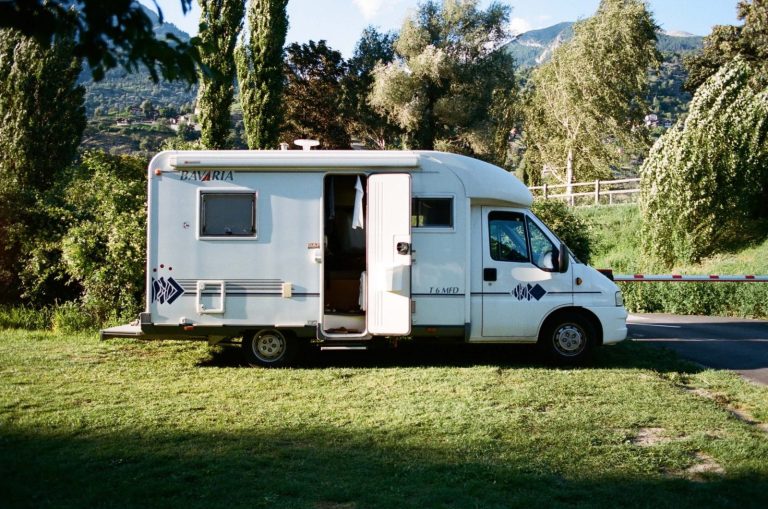

As a tradesman, your campervan is more than just a vehicle. It’s a mobile base of operations, a storage space for valuable tools, and a significant investment. Keeping it secure should be a top priority.
With the rise in the number of tradesmen utilising campervans as part of their business, there is an increasing need for enhanced vehicle security. A campervan tracker acts as an extra layer of protection, providing real-time location data that can be invaluable in the case of theft.
The use of a campervan tracker is not just about protecting your vehicle, but also the valuable tools and equipment inside it. Any theft can lead to significant financial loss and disruption to your business. This makes investing in a good quality campervan tracker a sensible decision for any tradesman.
Vehicle theft is a serious issue in the UK. According to data from the Office for National Statistics, there were approximately 113,000 incidents of vehicle-related theft in England and Wales in the year ending March 2020. This figure underlines the urgent need for effective security measures.
| Year | Incidents of Vehicle-Related Theft |
|---|---|
| 2018 | 106,000 |
| 2019 | 114,000 |
| 2020 | 113,000 |
Specifically, for tradesmen, the theft risk is even higher due to the valuable tools and equipment often stored in their vans. This makes the case for investing in a campervan tracker even more compelling.
A campervan tracker is a tool that greatly enhances the security of your vehicle. Understanding how these devices operate and the different types available can help you identify the best option for your needs.
A campervan tracker operates using GPS technology. The device, once installed in your campervan, communicates with GPS satellites to determine its location. This information is then transmitted to a central server, which can be accessed by you through a mobile app or a web-based platform.
In the event of a theft, the tracker continues to relay the vehicle’s location, allowing law enforcement, or a professional recovery service, to locate and retrieve the van. Some advanced trackers also have the ability to immobilise the vehicle remotely, preventing it from being moved until it is recovered.
For a comprehensive understanding of how GPS technology is utilised in vehicle security, you might want to explore our gps tracker.
There are various types of trackers available, each offering unique features and benefits:
Active Trackers: These devices provide real-time tracking, constantly updating you with the vehicle’s location. They are ideal for those who want to monitor their vehicle’s whereabouts at all times.
Passive Trackers: These trackers store the location data internally and it can be downloaded and viewed later. This type is ideal if you want to review the routes and stops your vehicle has made.
Covert Trackers: These are discreetly installed in the vehicle, making them difficult for thieves to detect and disable. They are a great choice for those who want to keep their security measures discreet.
OBD Trackers: These plug directly into the vehicle’s OBD (on-board diagnostics) port and are easy to install and use. However, they are more visible and could be easier for a determined thief to remove.
It’s crucial to select a tracker type that aligns with your requirements. For example, if you’re away from your campervan for extended periods, an active tracker may provide the peace of mind you need. Alternatively, if you’re primarily concerned with reviewing routes for efficiency, a passive tracker could be the ideal choice.
Understanding the ins and outs of campervan trackers can significantly enhance the security of your vehicle, offering you peace of mind and potentially even financial savings in the form of reduced insurance premiums.
Investing in a high-quality campervan tracker brings numerous benefits that go beyond the primary function of tracking a vehicle’s location. These benefits include increased security and peace of mind, potential insurance benefits, and improved recovery rates.
A top-tier campervan tracker provides an extra layer of security to your vehicle. The real-time tracking feature allows you to monitor your vehicle’s location at any time. This gives you peace of mind knowing that in the event of theft, the location of your campervan can be quickly identified. Not only does this feature deter potential thieves, but it also provides a sense of security that your valuable asset is protected.
Insurance companies often offer discounts to policyholders who have a high-quality tracker installed in their vehicle. The reasoning behind this is that a vehicle equipped with a tracker is more likely to be recovered in the event of theft, thereby reducing the insurance claim. However, it’s essential to check with your insurance provider to understand the specific discounts and benefits available.
Vehicles equipped with a high-quality tracker have significantly higher recovery rates compared to those without. This is due to the tracker’s ability to provide precise and real-time location data, which greatly assists law enforcement agencies in locating and recovering the vehicle quickly following a theft.
In conclusion, a high-quality tracker provides more than just location tracking. It offers increased vehicle security, potential insurance benefits, and improved recovery rates, making it a worthwhile investment for any campervan owner.
When selecting a campervan tracker, it’s vital that tradesmen look for certain key features that ensure maximum protection and efficient tracking. Below, we’ll explore three such features: Real-Time Tracking Capabilities, Geo-Fencing Features, and Alert Systems.
Real-time tracking is a crucial feature of a quality campervan tracker. It allows the vehicle’s location to be monitored in real-time, providing immediate information on its whereabouts. This is particularly useful in situations of theft, as it can significantly aid the recovery process.
Real-time tracking also enables tradesmen to monitor the usage of their work vans, helping them manage their fleet more effectively. It can provide valuable insights such as routes taken, travel times, stop durations, and more.
When considering a campervan tracker, ensure it offers a user-friendly interface for real-time tracking, preferably via a mobile app or a web-based platform.
Geo-fencing is another important feature to consider. It allows you to set a virtual boundary or ‘fence’ around a specific geographic area. If the vehicle enters or exits this area, the tracker sends an alert. This feature can be particularly useful for tradesmen who want to ensure their work vans are being used within predefined areas or routes.
Moreover, geo-fencing can also help prevent theft by alerting the owner if the vehicle moves from its parked location outside of working hours.
A good campervan tracker should come with a comprehensive alert system. This system should provide instant notifications for various events such as ignition on/off, geofence breach, speeding, and unusual movement or vibration (indicative of a possible theft attempt).
Some trackers also offer ‘silent alarm’ features, which send a covert alert to the owner (and possibly a designated security company) without alerting the thief. This can provide valuable time to locate and recover the vehicle before it’s too late.
Remember, a campervan tracker is only as good as its features. Ensure that the tracker you select offers real-time tracking, geo-fencing, and a comprehensive alert system to maximise the security of your work van.
Once you have decided to enhance the security of your work van with a campervan tracker, it’s essential to know how to install and use it effectively.
The installation process of a campervan tracker varies depending on the type of tracker. However, there are some general best practices to follow:
Like any other electronic device, a campervan tracker requires regular maintenance and updates to function optimally. Here are some tips:
A campervan tracker provides valuable data that can help in enhancing the security of your vehicle. Here are some ways to utilise this data effectively:
Remember, while a campervan tracker significantly enhances your vehicle’s security, it should be used in conjunction with other security measures for the best protection.

Michael Horsfall, a seasoned plumbing and heating engineer with over 35 years of trade experience, is the innovative mind behind VanGuardian, a proactive van security solution. His journey into the realm of security was triggered by recurrent incidents of theft, particularly copper pipe theft right from outside his residence in Leeds. The rampant van crimes led him to envision VanGuardian, a patented alarm system engineered to deter theft by activating upon contact, safeguarding assets before any damage occurs. Michael's in-depth understanding of the challenges faced by tradesmen, paired with his endeavor on Dragons' Den to secure investment, underscores his commitment to fostering van safety. His profound expertise and real-world experience equip him with a distinctive insight, making his blogs an invaluable resource for individuals seeking pragmatic advice on van safety and security.

Copyright © 2021 VANGUARDIAN
VANGUARDIAN is a registered trademark of PROTEK-ONE, company no. 11802780.
